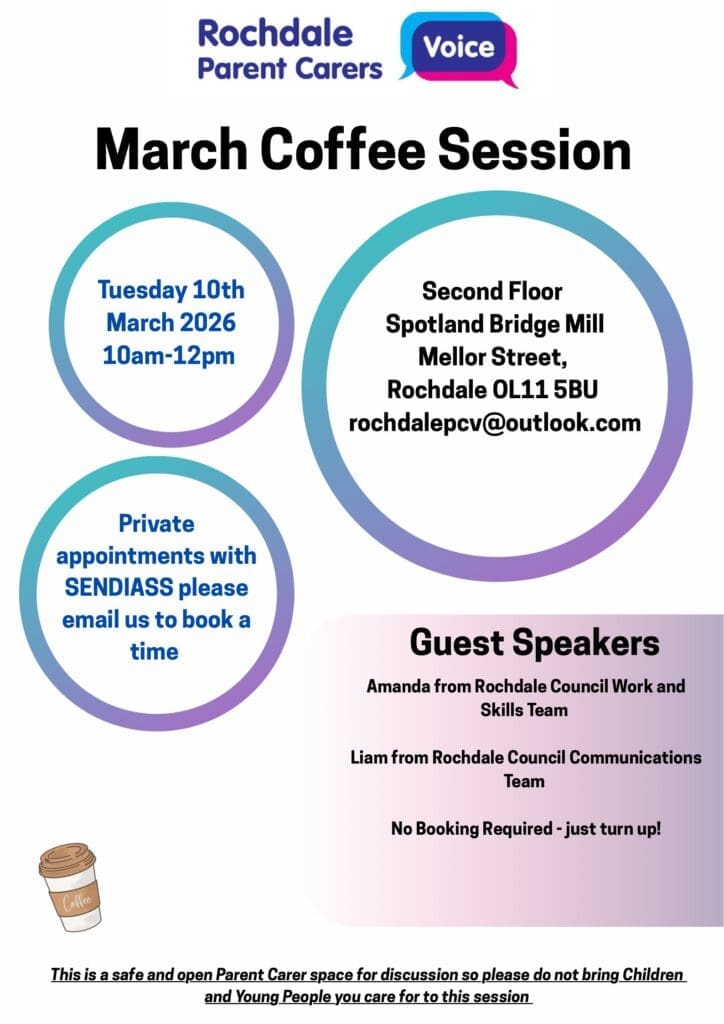At St. Vincent’s, guided by our Catholic faith, our mission is to nurture each child’s growth to its fullest potential. We embrace a curriculum that is broad, balanced, and enriched, catering to the diverse life experiences and needs of our students while upholding unwavering standards for excellence. Inclusion is not just a goal but a sacred duty, woven into the fabric of our school community. We identify and address the physical, social, emotional, and educational needs of every pupil, fostering their self-esteem and resilience in alignment with our Christian and British values. We collaborate closely with external partners, recognising that we are all instruments of God’s grace in the service of our students and their families. Above all, we honour the perspectives and emotions of each child and their parents, with Christ ever at the heart of our endeavours.
Please click on the sections below to learn more about SEND at St Vincent’s.
Our Special Educational Needs and Disabilities Coordinator is Mrs Shewan (Tuesdays and Thursdays only).
For information outside of Mrs Shewan’s working days, please speak to the Headteacher, Mrs. Brooks through our school office.
Special educational provision is educational or training provision that is additional to or different from that made generally for others of the same age. This means provision that goes beyond the differentiated approaches and learning arrangements normally provided as part of high quality, personalised teaching in the classroom.
Areas of Special Educational Need
Special educational needs and provision can be considered as falling under four broad areas:
1. Communication and interaction
2. Cognition and learning
3. Social, mental and emotional health
4. Sensory and/or physical
Many children and young people have difficulties that fit clearly into one of these areas; some have needs that span two or more areas; for others the precise nature of their need may not be clear at the outset and as a school we strive to work with our families to identify any specific needs.
Behavioural difficulties do not necessarily mean that a child or young person has a SEND and will not automatically lead to a pupil being registered as having SEND. However, consistent disruptive or withdrawn behaviours can be an indication of unmet SEN, and where there are concerns about behaviour, there will be an assessment to determine whether there are any causal factors such as undiagnosed learning difficulties, difficulties with communication or mental health issues.
Communication and interaction
Children and young people with speech, language and communication needs (SLCN) have difficulty in communicating with others. This may be because they have difficulty saying what they want to, understanding what is being said to them or they do not understand or use social rules of communication. Children and young people with ASD, including Asperger’s Syndrome and Autism, are likely to have particular difficulties with social interaction. They may also experience difficulties with language, communication and imagination, which can impact on how they relate to others.
Cognition and learning
Support for learning difficulties may be required when children and young people learn at a slower pace than their peers, even with appropriate differentiation. Learning difficulties cover a wide range of needs, including moderate learning difficulties (MLD), severe learning difficulties (SLD), where children are likely to need support in all areas of the curriculum and associated difficulties with mobility and communication, through to profound and multiple learning difficulties (PMLD).
Specific learning difficulties (SpLD), affect one or more specific aspects of learning. This encompasses a range of conditions such as dyslexia, dyscalculia and dyspraxia.
Social, emotional and mental health difficulties
Children and young people may experience a wide range of social and emotional difficulties which manifest themselves in many ways. These may include becoming withdrawn or isolated, as well as displaying challenging, disruptive or disturbing behaviour. These behaviours may reflect underlying mental health difficulties such as anxiety or depression, self-harming, substance misuse, eating disorders or physical symptoms that are medically unexplained. Other children and young people may have disorders such as attention deficit disorder, attention deficit hyperactive disorder or attachment disorder.
Please click here to view the SEND Code of Practice.
Please see our SEND Policy here.
The Local Offer is an information directory where individuals with SEND aged 0-25, as well as their parents or carers, can go to find out what support or provision they can expect to be available in their local area.
It covers a range of local agencies, including education, health, and social care services – such as childcare, independent schools or colleges, care placements, apprenticeships, transport arrangements between home and education settings, specialist teachers, therapy services, and other specialist support. It should also include relevant regional and national specialist provision, such as provision for children and young people with rare and more complex SEND.
Click here to access Rochdale’s Local Offer
SENDIASS (Special Educational Needs Disability Information Advice Support Service)
SENDiass has a series of workshops running over the next few months, designed to provide advice and support around key SEND topics.
These sessions aim to empower parents and carers and have been developed based on feedback from families and professionals in the borough.
Please see the link below to access further information or to book on:
Rochdale SENDiass Workshops Sept – Dec 2025 | Eventbrite
SENDiass also has a brand-new website full of information and advice:
It is in everyone’s interests for complaints to be resolved as quickly and at as low a level as possible and our SEN complaint procedure is as follows:
– the complaint is dealt with by the class teacher – the complainant needs to feel that they have been listened to and that all points raised have been addressed. If the matter remains unresolved,
– the complaint is dealt with by the SENDCo or by a senior manager. If there is still no resolution
– the Head teacher should become actively involved
– if the matter is still not resolved, the complainant must put their complaint in writing to the Chair of Governors
– the Governing Body will deal with the matter through their agreed complaint resolution procedures
– in the unlikely event that the matter is still not resolved, the parent can then take the complaint to the Local Authority or request independent disagreement resolution and the school will make further information available about this process on request.
Help and Support





